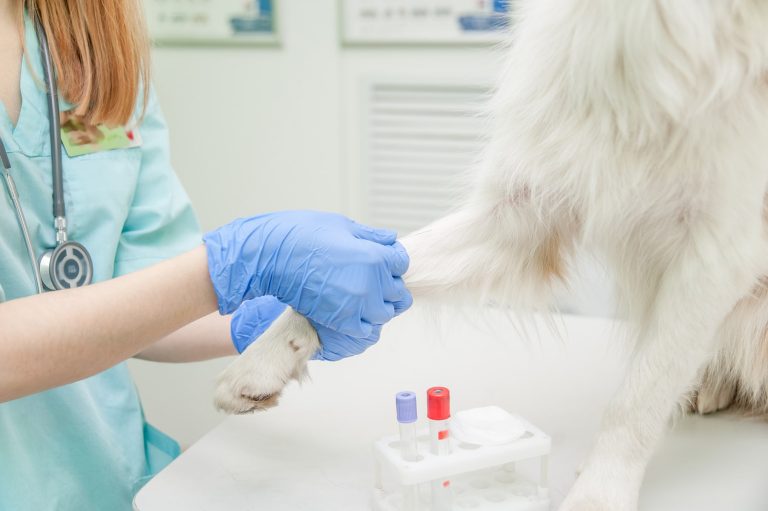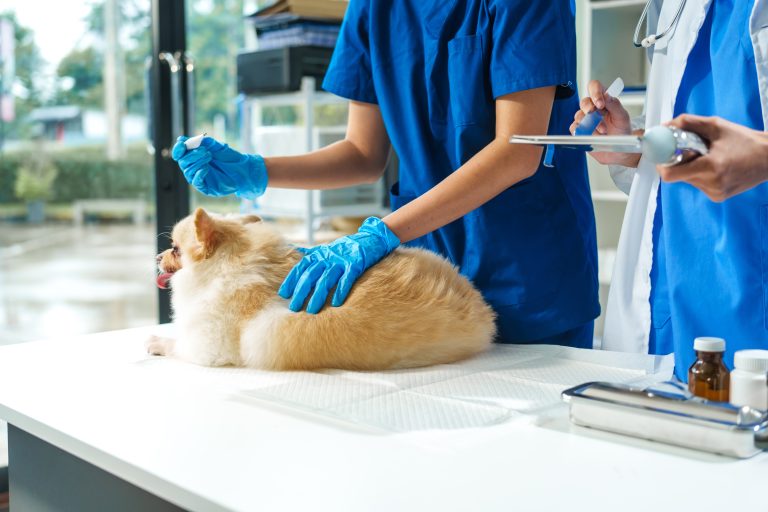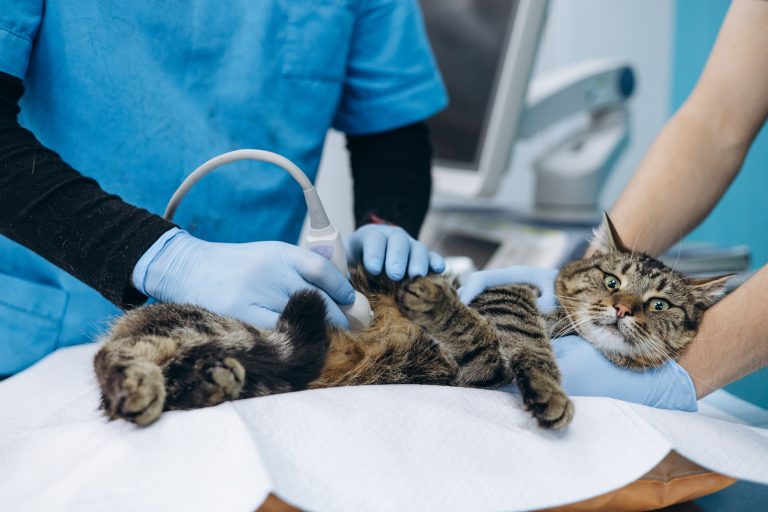When your pet isn’t acting like itself, it can be frightening, especially if you suspect they may have ingested something harmful. At Summit Veterinary Urgent Care, we understand how stressful these situations can be.
Led by Dr. Lauren Smith, our team provides emergency veterinary care for dogs, cats, and other small animals experiencing sudden illness, including toxic exposure. We’re here to evaluate symptoms, run tests, and provide treatment—all with compassion and clarity.If you suspect your pet has been poisoned, contact our clinic immediately at 256-937-7776. Walk-ins are always welcome.
This Article Will Address:
- What symptoms to watch for in dogs and cats
- Common household poisons that affect pets
- What to do if your pet eats something toxic
- How vets test for poisoning
- What diagnostic tools are used
- How long test results take
- Steps you can take to prevent poisoning at home
- When it’s time to visit an emergency vet
What Are the Symptoms of Poisoning in Pets?
Poisoning symptoms can vary based on the substance, your pet’s size, and how long ago the exposure occurred. Dogs and cats may respond differently, but there are common warning signs to watch for.
Mild Symptoms:
- Vomiting
- Drooling
- Lethargy
- Diarrhea
Moderate Symptoms:
- Tremors
- Disorientation
- Lack of coordination
- Shaking or twitching
Severe Symptoms:
- Seizures
- Collapse or unconsciousness
- Pale or bluish gums
- Irregular heartbeat or rapid breathing
Even mild symptoms can become serious quickly. If your pet shows any unusual behavior, it’s better to act early.
What Types of Poisons Commonly Affect Pets?
Everyday items in your home or yard can be harmful to pets. Some are well-known, while others may surprise you.
Common pet poisons include:
- Human medications: Ibuprofen, acetaminophen, antidepressants
- Foods: Chocolate, grapes, raisins, onions, garlic, xylitol (found in gum and baked goods)
- Household chemicals: Cleaning products, antifreeze, bleach
- Rodenticides and insecticides: Mouse bait, slug pellets, flea and tick treatments (if misused)
- Toxic plants: Lilies (especially for cats), sago palm, azaleas, tulips
Did you know? Lilies are so toxic to cats that even small amounts—like licking pollen off their fur—can cause kidney failure.
What Should I Do If I Think My Pet Has Eaten Something Toxic?
Time matters in a poisoning emergency. Here’s what you should do:
- Stay calm. Panicking won’t help you or your pet.
- Remove access to the suspected toxin right away.
- Do not induce vomiting unless specifically told to do so by a vet.
- Call Summit Veterinary Urgent Care or a pet poison hotline immediately.
Helpful contact numbers:
Bringing in packaging or labels from the substance (medication bottle, plant tag, cleaner) can help your vet make a faster, more accurate diagnosis.
How Do Vets Test for Poisoning in Pets?
When you arrive at Summit Veterinary Urgent Care, we’ll begin with a physical exam and ask about symptoms and possible exposure. If poisoning is suspected, we’ll proceed with diagnostics.
- Physical examination for neurological or organ-related symptoms
- Bloodwork and urinalysis to check kidney, liver, and electrolyte levels
- Imaging (X-rays or ultrasound) to look for ingested objects or internal damage
- Toxicology screening, especially if a specific toxin is known or suspected
How Long Does It Take for Vets to Get Poisoning Test Results?
- In-house tests (like bloodwork) can return results within a few hours
- External lab panels or advanced toxicology screenings may take longer, depending on complexity.
In many cases, fast action and clinical signs guide treatment even before test results return.
How to Prevent Poisoning in Pets at Home
Simple precautions can go a long way in protecting your pets:
- Store all human and pet medications securely
- Keep foods like chocolate, grapes, and gum away from curious noses
- Use pet-safe cleaning products and store them out of reach
- Secure rodent or insect bait in areas inaccessible to pets
- Research houseplants and outdoor landscaping before purchase
If in doubt, call our clinic or the ASPCA to double-check the safety of a substance.
When to Call an Emergency Vet
Some poisoning symptoms appear mild at first but escalate quickly. If your pet is acting off, vomiting unexpectedly, or seems “just not right,” it’s worth a visit.
Occasional vomiting may not require urgent care. However, you should bring your dog in if:
- They vomit more than once in a 24-hour period
- Vomit contains blood or a dark, coffee-ground appearance
- They show signs of lethargy, dehydration, or abdominal pain
Vomiting can be a symptom of poisoning, infection, or a blockage, early intervention is key.
Don’t Wait! Schedule your Pet’s Appointment Today
If you suspect your pet has been poisoned, don’t wait. Trust the experienced, compassionate team at Summit Veterinary Urgent Care in Decatur, AL, for fast, effective treatment. We’re here to help with toxic exposures, sudden symptoms, and urgent health concerns in dogs, cats, small mammals, and more. Call us at 256-937-7776 or walk in today—no appointment needed.






